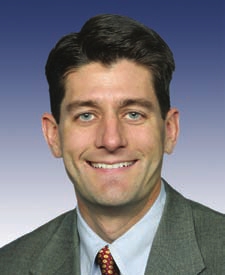2012 self funded candidates
This year, with all the rightful attention to Mitt Romney’s undisclosed tax returns and other financial records, the spotlight has moved away temporarily from some other big money–several large self-funded campaigns for federal office. But a quick check into who is self-funding suggests that the phenomenon of self-funding is continuing to drain GOP prospects in fall. This suggestion should not be oversimplified or exaggerated. But so far, glittering vistas are not opening as the result of wealthy individuals’ pouring millions of their own money–or at least half a million–into their own campaigns. See below.
U.S. House:
Of the twelve top self funders in 2012, according to the Center for Responsive Politics, four faced each other in expensive house primaries in Texas and New York. David Alameel (D) in Texas 33rd, top self funder in the cycle at the time, lost his primary. Domingo Alberto Garcia, seventh in self funding, beat Alameel but faces Mark Veasey in a July 31 run-off. Jack Davis (R) in New York’s 26th lost his primary, possibly not well positioned anyway but further disadvantaged after scuffling with a cameraman. Jane Corwin (R) successfully weathered the challenge from former Independent Davis and faces incumbent Kathy Hochul in the general election. Hochul , of course, won the congressional seat in a special election after previous incumbent Chris Lee (R) aired shirtless photos of himself via craigslist.

Former Rep. Chris Lee, R-Conn.
Texas 33 generally votes D, New York 26 generally votes R. These two races fit the familiar pattern of people pouring money into races they think they can actually win.
Not all self-funded candidacies fit that pattern.
Davis and Corwin were # 2 and 3 respectively in amounts self funded. Number 4, Robert Pittenger (R) in North Carolina’s 9th, won the primary race Tuesday July 17 (yesterday) and will face Jennifer Roberts (D) and Curtis Campbell (I) in the general. Numbers 5 and 6, John K. Delaney (D) and Mark Greenberg (R), won their respective primaries in Maryland’s 6th and Connecticut’s 5th.
Maryland 6 and Connecticut 5 are both iffy, though the Maryland district is much less so.

Scott Peters
Number 8 on the house self funding list, Independent Bill Bloomfield, faces incumbent Rep. Henry Waxman in California 33. New rules–CA now has a top-two structure in place. Waxman is still favored. Under the same system, Scott Peters (D) in California’s 52nd will face incumbent Rep. Brian Bilbray (R) in November. Peters and Craig Huey in California’s 36th were ninth and tenth among self funders.
Looks as though CA new top-two rule has done nothing so far to diminish the importance of money in politics, or to invigorate intra-party challenges to incumbents.
Number eleven on the self funder list, Suzan DelBene (D) in Washington 1, is the remaining candidate still facing a primary, also under a top-two rule. Hers will take place Aug. 7. Number twelve, Joseph Carvin (R) in New York 17, won his primary and will face incumbent Rep. Nita Lowey (D).
U.S. Senate:
In Senate races as in House, two of the top ten 2012 self-funders faced each other in Texas. Top self-funder David Dewhurst (R) bested #4 Thomas Leppert (R) among others in the primary and now faces Ted Cruz in the July 31 run-off. Two others faced each other in Pennsylvania, where #2 Tom Smith (R) was defeated by #9 Steven Welch. He is running against incumbent Sen. Bob Casey, Jr (D).

Wil Cardon
Of the other top senate self funders, #3 Wil Cardon (R) in Arizona, #5 Eric Hovde (R) in Wisconsin, #6 Linda McMahon (R) in Connecticut and #7 John Brunner (R) in Wisconsin are still in primary races. Cardon is challenging Sen. Jeff Flake; Flake is possibly not aided by some remarks just released by the Flake campaign. Hovde, just endorsed by FreedomWorks, is running against former Rep. Mark Neumann and former Gov. Tommy Thompson. The winner of the heated primary will face Dem nominee [ ] Tammy Baldwin. McMahon faces Chris Shays August 14, to run for the seat being vacated by Sen. Joe Lieberman. Sarah Steelman in the crowded Missouri GOP field leading to August 7 was just endorsed by Sarah Palin, if that makes a difference. The winner challenges Sen. Claire McCaskill (D).
Last two spots on the top-ten self funder list for 2012: Greg Sowards (R) defeated Rep. Heather Wilson for the GOP nomination for U.S. Senate in New Mexico, and Julien Modica (D) withdrew before the Virginia primary, won by former Gov. Tim Kaine.

Heather Wilson
A few simple patterns emerge, with few surprises.
- All the top self funders in Senate races, or victorious self funders, are Republicans.
- The sword may cut both ways, however; of the six victorious GOP self funders in Senate races, four are still running strong in their party’s primaries.
- Of the six, nominees in five states are or will be in iffy senate races–Arizona, Connecticut, Missouri, Pennsylvania and Wisconsin. One take-away here is to keep an eye out for election rules and other election tactics to suppress the vote in these states (as in Florida).
- More of the top self funders in House races are Democrats.
- Self-funded Democratic nominees have a higher win ratio than self funded Republican nominees. That is, if they manage to get through the nomination process, they have a statistically better shot at winning the general. That may be partly a function of more negative Dem attitude toward self funders running for office than GOPers have (in general).
- Women self funders do not fare better than other women or better than other self funders. It looks as though any negative perception of self funding tends to work more harshly against a woman candidate, just as a negative perception of pennilessness tends to work more harshly against a woman candidate, other things being equal. Male self funders do not fare better than other men candidates but do fare better than women self funders.
- The state of New York, as ever, demonstrates premier ability to match candidates against each other with extraneous factors level: wealth runs on par with wealth, just as ethnicity tends to meet similar ethnicity, etc. The occasional exception–Jonathan Tasini taking on Hillary Clinton–does nothing to disprove the general rule.
Of the eighteen current top self funders in races for House and Senate, only three at this point look like strong bets to win their elections–Brad Sherman and Scott Peters in California, and Domingo Garcia in Texas.
This kind of guess, of course, is lightweight in some ways despite the destructiveness of money in politics. But it is a reminder that money is not the only thing in the picture. The interplay of media reporting and other media representations with political campaigns is part of the public discourse.
Take 2010, for example. Numerous prognosticators suggested that 2010 would not be a good year for Democrats nationally, and the broad suggestion was right. Predictions about self funding, that year, were less on the nose.
Broadly, here is the pattern of media representations in that cycle. Big pop-news periodicals–specifically U.S. News and USA Today–began with pretty rosy assessments for candidates with more money than Creosote, as they say in P. G. Wodehouse. Here is a May 13, 2010, piece from USNews, and here is a June 22, 2010, piece from USAToday.
The assessment was shared by some progressive publications, less rosily. Here for example is the estimable Washington Independent Aug. 4.
On the other hand, on June 23 the Seattle Post Globe weighed in with a more detached assessment drawn from history, as did Poynter on Aug. 2.
The Center for Responsive Politics crunched the mixed numbers for self funders on Oct. 6. This analysis was quickly followed by similar treatment of the topic in American Prospect on Oct. 8.
With election returns and hard numbers in, the Center for Responsive Politics published a quick results list for self funders on Nov. 3, followed, quickly again, by a WashPost article the next day to the same effect.
Update August 10:
In Missouri August 7, Rep. Todd Akin defeated the self-financing candidate among others to take on Sen. Claire McCaskill. A good editorial on the senate race shaping up is found here. Another win for far-righters–not that Akin was the only one–and another loss for self financers.











